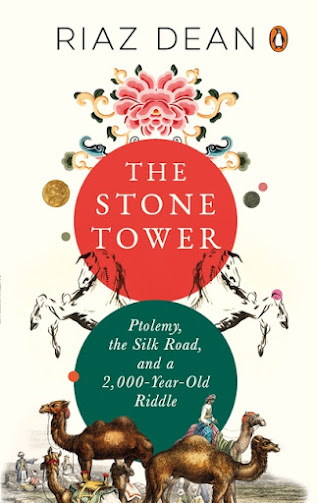The history of romance for silk has never waned since it was first discovered some 3,000 years ago in China. The most closely guarded state secret has paid rich dividends for China which presently accounts for 74 per cent of the world’s total production of raw silk, and controls 90 per cent of the world’s silk market. Such is the fascination for the chequered history of trade in silk that the present Chinese government has decided to revive the historic Silk Road – through the controversial Belt and Road initiative. Ever since the first century scholar Claudius Ptolemy wrote about it, the earliest highway in the world has continued to fascinate historians.
Considered by historians as the quintessential example of ancient globalization connecting the great empires of China and Rome, the old Silk Road influenced social and economic assimilation of cultures across Europe, Asia and beyond. Trading in silk, jade, spices, horses and slaves, the caravans trundling along this road discovered each other and the encounter between them changed the course of human history. It is for this reason that the history of the Silk Road assumes significance in questioning the Western bias on the role of the older civilizations in shaping the world. There is much to counter such assumptions.
In the quest to resolve the 2,000-year-old riddle about the Stone Tower that Ptolemy had written about - the midpoint in the route linking Asia and Europe that was the most important landmark for travelers on the silk route - Dean retraced the Silk Road from Istanbul to Xi’an, and sifted through earlier descriptions in geographical search. The mid point remains important pivot on the Silk Road because locating the elusive site would help capture the wider historical context for future excavations towards understanding the history of civilizations that existed along the route.
The Stone Tower is as much a book on ancient history and political intrigue, as much on geography and cartography, taking the challenge to mark the spot among a dozen mentions of a Stone Tower in Ptolemy’s a monumental atlas of the ancient world, Geographia. Though his vague description about the tower even misled Christopher Columbus, the clue that it was on top of a revered mountain did serve a crucial purpose. Narrowing his search down to four chioces, Dean examined the diverse functional requirements of the passing caravans in making a case for Sulaiman-Too at 1,175 metres above sea level as the location of the tower, a clearly identifiable and permanent landmark close to the Chinese border. How the author finally arrives at the elusive site of the tower makes The Stone Tower a fascinating read.
The origin and history of The Silk Road comes to life through three carefully crafted chapters, from the birth of the Silk Road to the historical events on its ascendency and control, leading to the establishment of the tower as the pivot that connected social, cultural, political, and geographical dots along the silk road. Backed by meticulous research, the erudite narrative on the Silk Road presents the region as the progenitor of important inventions that powered then world economy. With China still leading the world in modern technology, and India with its philosophical riches, the history seems to be on the verge of repeating itself.
The Stone Tower covers almost 300 years of ancient history, from 140 BC when a Chinese palace guard had volunteered to travel west for his emperor to AD 140 when Ptolemy had probably completed his monumental Geograhia. It is that part of our shared history that augers well to redefine and realign the present. Dean succeeds in bringing to life 300 years of the bygone era, providing a wider perspective on our shared history. The book makes engaging reading in parts, as some sections will appeal more to history buffs. All said, the search for elusive Stone Tower makes a significant contribution to the literature on the Silk Road, offering a fascinating tale of archaeology and exploration. It is the romance for silk that brings the bygone era to life!
by Riaz Dean
Penguin Viking, New Delhi
Extent: 223, Price: Rs. 599.

